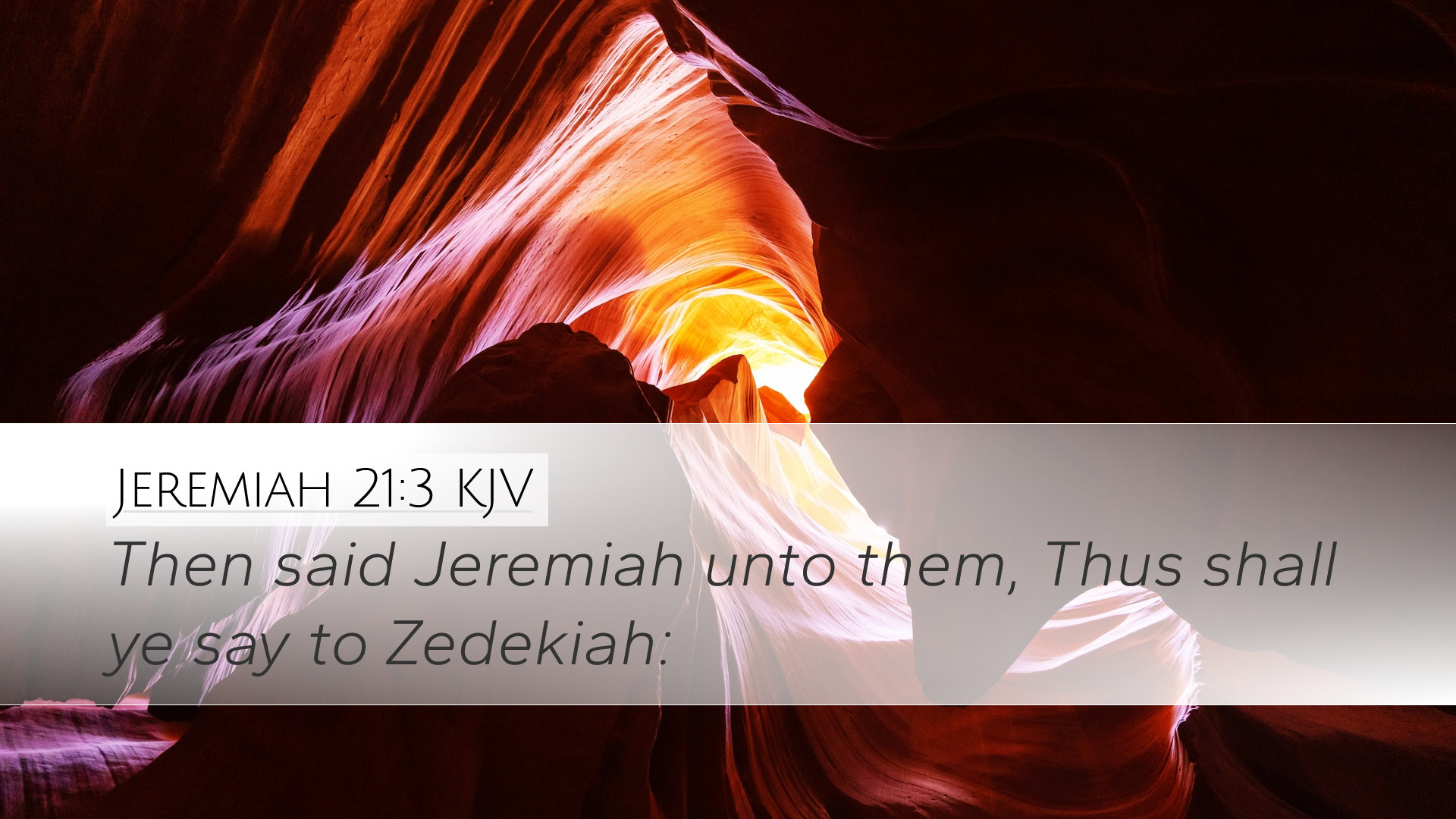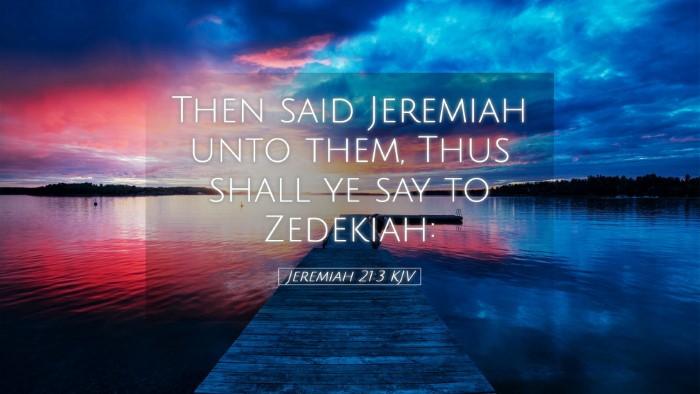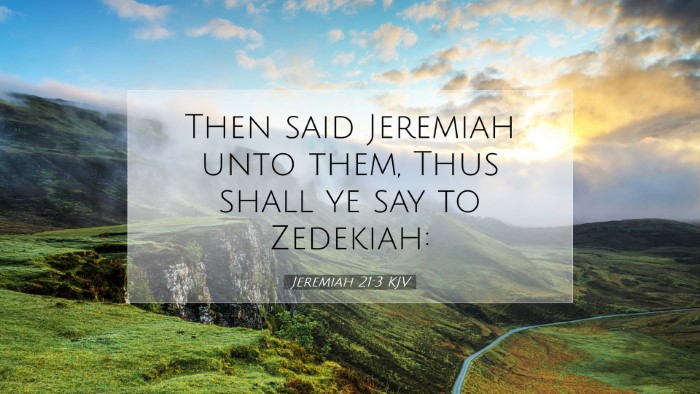Commentary on Jeremiah 21:3
Jeremiah 21:3 states: "Then said Jeremiah unto them, Thus shall ye say to Zedekiah:"
This verse marks a pivotal moment in the prophetic ministry of Jeremiah as he engages with the leaders of Judah at a time of great crisis. In understanding this passage, one must consider the historical and theological backdrop of the text.
Contextual Background
The events surrounding Jeremiah 21 transpire during the late days of King Zedekiah's reign, as Jerusalem faces the imminent threat of Babylonian siege. This context is crucial for interpreting the urgency of Jeremiah’s message. The nation of Judah is marked by disobedience and rebellion against God, which has led them to their present dire circumstances.
The Role of Jeremiah
Jeremiah stands as a solitary voice of truth amidst a nation steeped in sin. His prophetic role is to convey God's judgment and warning while also offering hope. According to Matthew Henry, Jeremiah's messages often reflect God’s heart, showing mercy even in judgment.
The Message to Zedekiah
Jeremiah’s communication with Zedekiah serves to highlight the king’s position and responsibilities. Here, we find insights from Albert Barnes, who emphasizes that God is still concerned with the rulers of nations, addressing them with specific guidance and forewarning. Zedekiah, despite his flaws, is directed to seek God’s counsel through His prophet, indicating that there is still a path to redemption if the leaders of Judah would repent.
Prophetic Authority
Jeremiah, as a prophet, conveys the divine message not out of his own authority but as a representative of God. This reflects Adam Clarke’s analysis of prophetic roles: a prophet is not merely a speaker but a vessel through which God’s will is communicated. The phrase “Thus shall ye say” indicates the exact nature in which Zedekiah is to receive God’s message, underscoring the importance of prophetic integrity.
Theological Implications
This verse demonstrates several theological themes:
- Divine Sovereignty: God’s control over nations and rulers is evident, as He directly addresses Zedekiah through Jeremiah.
- Judgment and Mercy: While judgment looms for Jerusalem, there exists an invitation to seek God, reflecting His unwavering mercy.
- Intercession: Jeremiah’s role highlights the importance of intercession for a nation in turmoil. His willingness to engage with the king portrays a model for modern ministry.
Call to Action
For pastors and theologians today, this passage serves as a reminder of the need for boldness in delivering God’s message despite societal pressures. The historical engagement between Jeremiah and Zedekiah can serve as an instructive model for contemporary leaders who are called to navigate complex moral landscapes, encouraging them to remain faithful to God’s word.
Conclusion
Jeremiah 21:3 serves as a critical intersection of prophecy, leadership, and divine directive during a tumultuous period in Judah's history. The insights derived from public domain commentaries highlight the enduring nature of God’s communication with leaders and the call for repentance that echoes across time. As ministers of the Gospel, the examination of this text encourages a deeper reliance on divine wisdom in our own leadership contexts.


